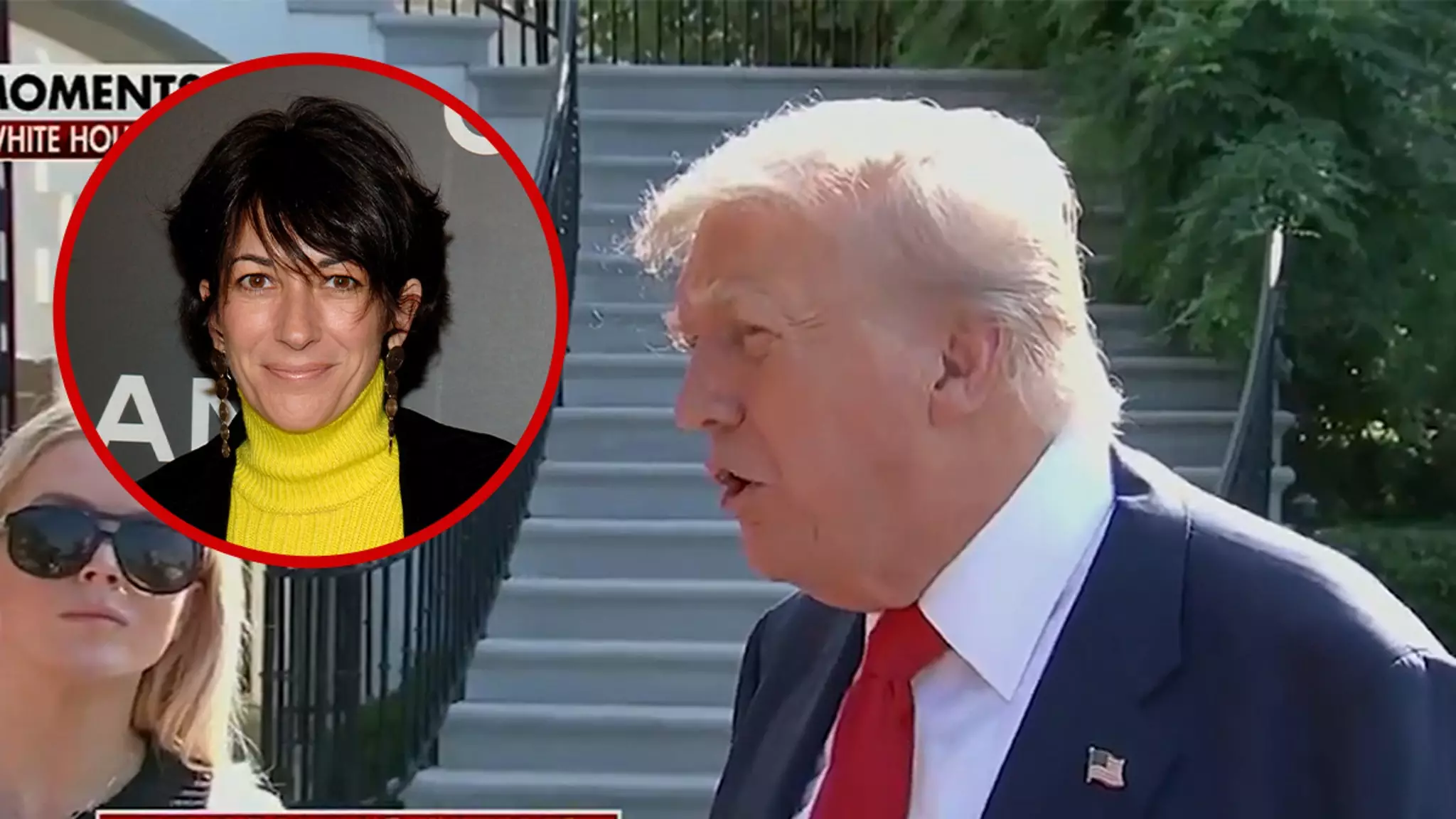The possibility of a presidential pardon for Ghislaine Maxwell has ignited a wildfire of speculation and controversy within political and public spheres. Once the White House declared unequivocally that no discussions about pardoning Maxwell were happening, recent statements from Donald Trump suggest a startling shift. His recent remark, leaving the door ajar for a pardon, not only challenges prior assurances but also raises questions about the influence of political loyalty, legal considerations, and the opaque nature of presidential pardons.
This evolving stance amplifies the perception that the justice process surrounding Jeffrey Epstein’s associates is deeply entangled with political motives. The fact that the President is now hinting at a possible clemency deserves scrutiny, especially given the serious allegations tied to Maxwell, who was convicted for her role in facilitating Epstein’s heinous activities. Public confidence in the judicial process is fragile, and such mixed messages from the highest office risk eroding trust in the integrity of the legal system.
Moreover, this shift demonstrates how political power can be wielded in ways that overshadow the pursuit of justice. It raises critical questions about accountability, the influence of wealthy elites, and whether the justice system operates independently or is susceptible to external pressures. For many, this potential pardon symbolizes a broader pattern of shielding influential figures from the consequences of their actions, feeding into cynicism and conspiracy theories that have already tarnished the public discourse surrounding Epstein.
The Intrigue Behind High-Profile Investigations
The involvement of top law enforcement officials, such as Deputy Attorney General Todd Blanche, in questioning Maxwell highlights the ongoing complexity of the Epstein saga. Particularly unusual is a deputy attorney general conducting interviews rather than line prosecutors, suggesting that the case’s sensitivity extends beyond routine procedures. These developments indicate that authorities are still seeking to unravel the full extent of the network associated with Epstein’s trafficking enterprise.
Simultaneously, public fascination with the case has been fueled by allegations of high-level abuses and a purported “client list” involving prominent figures. The shifting narratives from official sources, including the Department of Justice and FBI, about whether Epstein maintained such a list, reflect the clandestine and politically charged nature of the investigation. When authorities deny the existence of a client list, it feeds into conspiracy theories and skepticism. Conversely, claims that figures from powerful circles may have been complicit deepen the controversy.
This on-again, off-again communication underscores the opaque relationship between law enforcement and political leadership. It exemplifies the difficulty in achieving transparent justice when states and federal agencies are caught amidst political storms. The case becomes a battleground for public trust, with each new revelation or denial shaping perceptions of integrity and honesty from the justice system.
The Implications of Celebrities, Power, and Secrecy
Adding another layer of complexity is the recent emergence of a scandalous detail: a 50th birthday message allegedly penned by Trump to Epstein. Such allegations, if substantiated, could suggest closer ties between powerful political figures and Epstein than publicly acknowledged. They serve as unsettling reminders that wealth and influence often operate in dark, hidden corridors, where accountability is scarce.
Congressional subpoenas for Maxwell testify to the enduring demand for transparency, yet no dates have been scheduled, leaving the public in suspense. The ultimate impact of these hearings could be profound. They threaten to expose or deepen the mystery surrounding Epstein’s network, hinting that the true extent of its reach may never be fully uncovered if political motivations override judicial discovery.
The case underscores a broader societal dilemma: how to ensure that justice is served when the entanglement of money, power, and influence complicates straightforward legal processes. The Epstein case, with its web of secrecy and high-profile connections, acts as a mirror reflecting the potential disparities in accountability. It challenges us to confront uncomfortable truths about the mechanisms that protect elites and how those mechanisms might hinder the pursuit of true justice.
Throughout all this, the debate remains alive and incendiary. Whether or not Maxwell receives a pardon may seem like a single legal decision, but it symbolizes a much larger struggle—one that pits transparency against concealment, justice against political expediency, and the moral integrity of a nation against the shadows cast by its most powerful.

